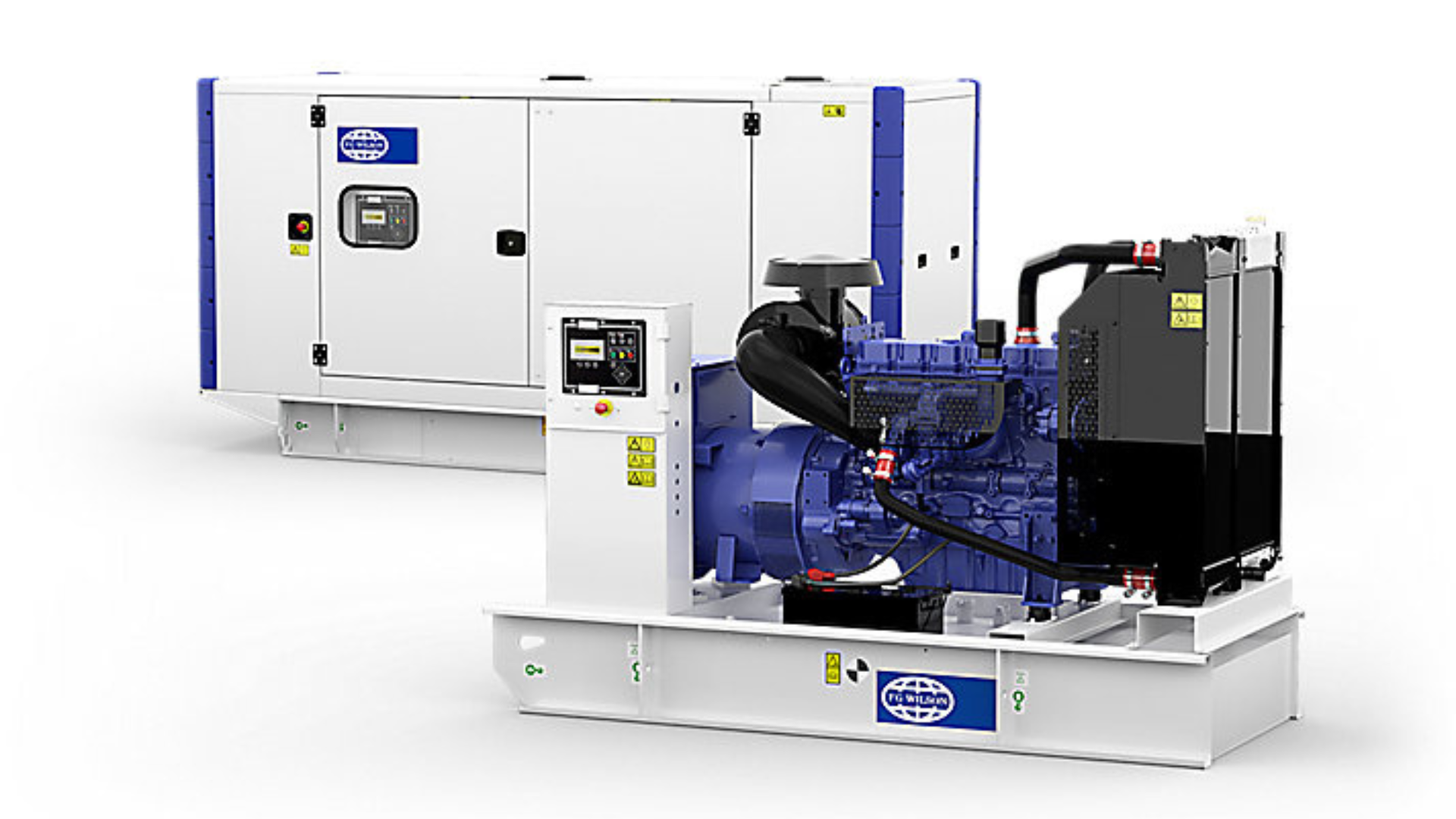Diesel Generators (DG Sets)
Diesel generators are commonly used as backup power systems in homes, industries, and commercial establishments, especially in regions with an unreliable grid. Diesel generators convert the chemical energy of diesel fuel into mechanical energy, which is then used to generate electricity.
Components of a Diesel Generator:
- Engine: The heart of the DG set, where the diesel fuel is burned to create mechanical power. It is generally a reciprocating internal combustion engine (often a multi-cylinder engine) that drives an alternator (generator).
- Alternator: This converts the mechanical energy produced by the engine into electrical energy (AC). The alternator has a rotor (rotating part) and a stator (stationary part) that produce alternating current.
- Fuel System: Composed of components like fuel pumps, filters, and injectors, which regulate the supply of diesel to the engine.
- Cooling System: The engine and alternator generate a lot of heat during operation, so a cooling system (typically air or water-cooled) is used to keep temperatures in a safe range.
- Lubrication System: Ensures smooth movement of engine parts by reducing friction and wear.
- Control Panel: The user interface that allows the operator to start, stop, and monitor the generator’s performance, including voltage, current, and fuel level.
- Battery: Provides the initial power to start the engine.
How Diesel Generators Work:
- Diesel fuel is injected into the engine’s combustion chamber, where it is ignited by compression. This creates high-pressure gases that push pistons.
- The movement of the pistons turns the crankshaft, which then drives the alternator’s rotor.
- The alternator converts this mechanical energy into alternating current (AC) electricity, which is then distributed for use.
Advantages of Diesel Generators:
- Reliability: Diesel generators are known for their robustness and ability to run for long hours.
- Fuel Availability: Diesel is widely available and has a relatively high energy density, which makes it suitable for both short- and long-term operation.
- Cost-Effective for Short-Term Use: In areas with frequent power outages or no access to grid electricity, diesel generators are a popular choice.
Disadvantages of Diesel Generators:
- Fuel Costs: Diesel is relatively expensive compared to natural gas or other fuels. Ongoing operational costs can be high, especially if the generator runs frequently.
- Environmental Impact: Diesel engines produce carbon emissions, nitrogen oxides (NOx), and particulate matter, contributing to air pollution and global warming.
- Noise Pollution: Diesel generators can be quite noisy, which is why they are often used in enclosed spaces or require noise-reducing enclosures.

